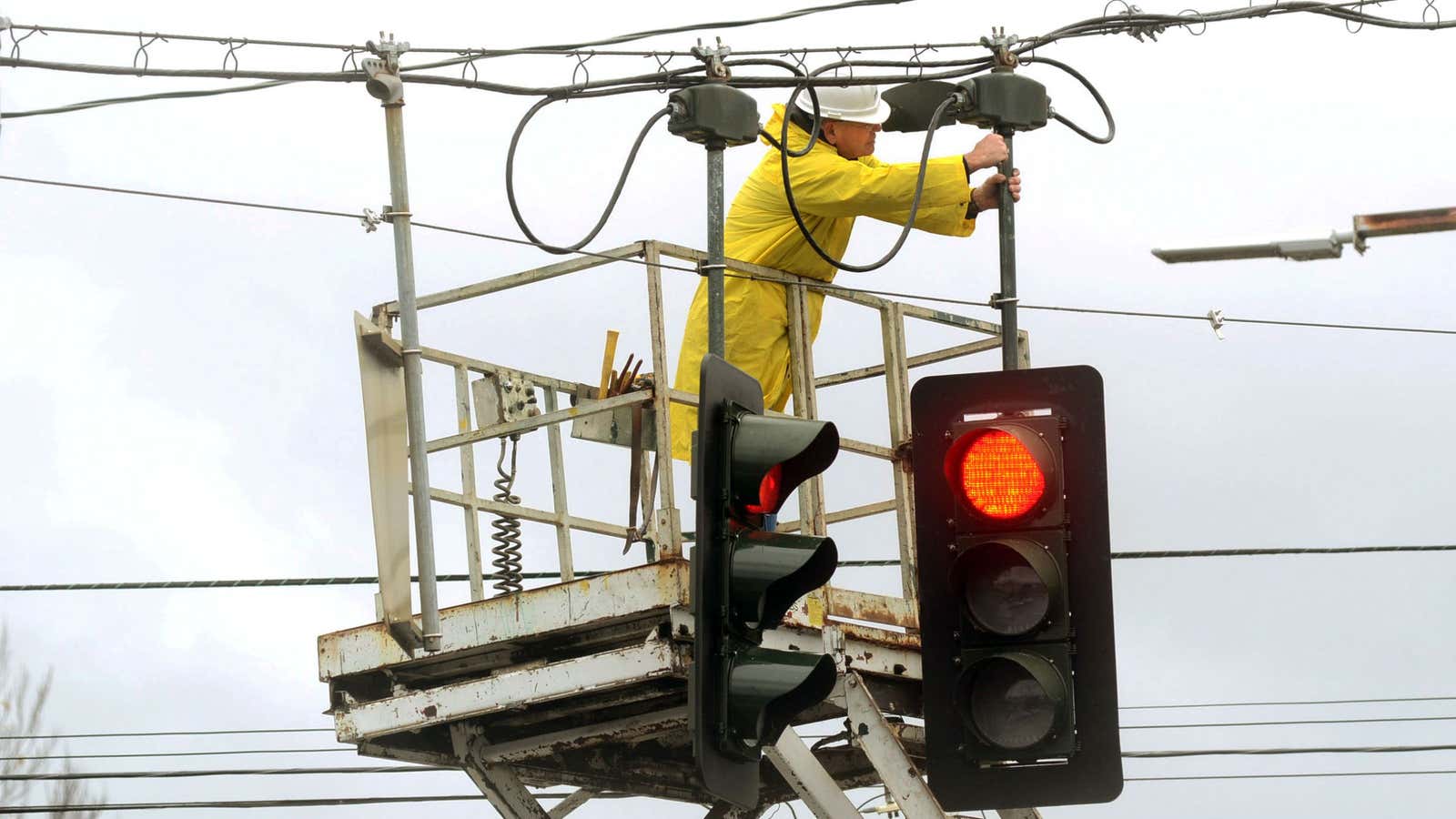After years hearing about the lack of IT professionals, you’d think those are the hardest jobs to fill. But a new report by human resources firm Manpower indicates they are not.
Electricians, welders, and other skilled trades professions are the biggest headaches to hire for in the US and globally, Manpower reported based on a survey of 37,000 employers. In the US, hotel and restaurant workers and sales representatives were very difficult to recruit as well. In India, employers dread hiring for accounting, finance, and IT, while in Japan, engineers, sales representatives and managers are hardest to recruit.
The global talent shortage hit a seven-year high, with 36% of employers saying it is tough placing people in certain jobs. In Peru, India, Argentina, Brazil, and Turkey more than 60% of employers reported hiring difficulties, and in Japan, about 80% employers struggled to hire staff, Manpower said. (At the other end of the spectrum, employers in Ireland, Spain, and the Netherlands indicated almost no difficulty hiring.)
More than half of the companies that identified talent shortages say it significantly impacts their ability to meet client needs, and 40% globally say it hurts productivity and competitiveness.
Here’s the list of the top seven jobs globally that are most difficult to fill:
- Skilled trades
- Engineers
- Technicians
- Sales representatives
- Accounting and finance staff
- Management and executives
- Sales managers
IT staffs were in eighth position on both global and US lists. Nurses, which have been on the most in-demand jobs for years, fell from second most-difficult-to find occupation in 2009 to 10th this year on the US list—and didn’t even appear the global list.
Skilled-trades shortages seem to show up in most regions, as does demand for good sales representatives and sales managers. But other shortages may be revving up that don’t yet show up on Manpower’s annual list. Mercer, a human resources consulting firm, spots a lack of oil and gas workers, caused by a wave of retirements and a technical skills gap. And in Hong Kong, a need for waiters has forced employers to offer them health insurance and education subsidies.
